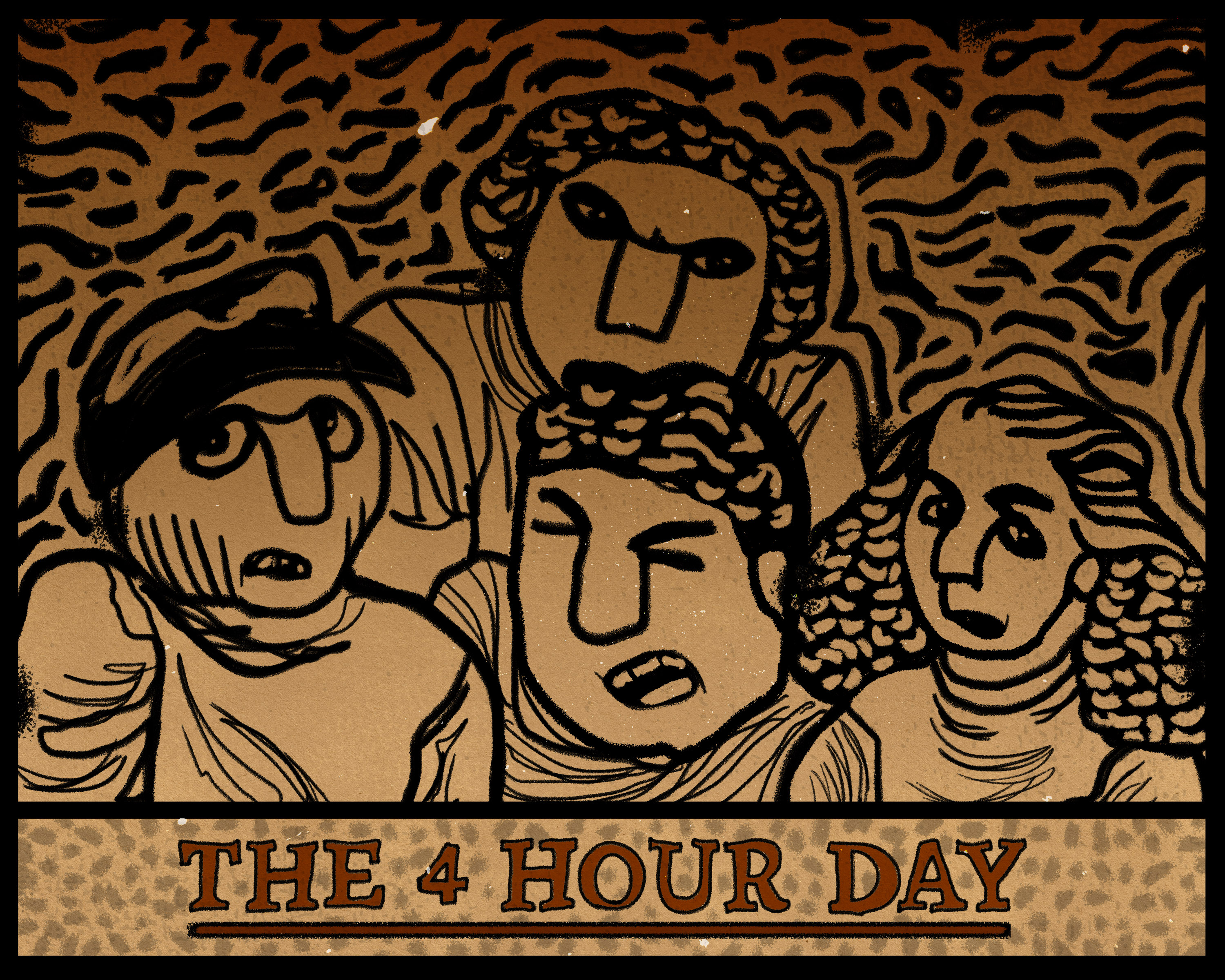On the morning of April 5, 1994, Jarrod woke up wide-eyed. Believing that he could fly, the teenager convinced his father to drive him and a hang glider to a barren country road. There, they tied a rope from the glider to the old family pick-up, and, in short order, Jarrod was launched into the open sky. According to accounts, he hung deliriously against the vast white air for only about five minutes. Then the winds changed. He began to pitch and to spiral. It wasn’t long before a deep noiseless thud announced an end to the afternoon’s ambitions. And, as Jarrod’s life spilled out of him and into the dirt road, the laws of the universe decreed, in their infinite cruelty, that it was good.
I’m not really one to “editorialize.” I find most “opinions” to be more trouble than they’re worth. But if there’s one thing I feel comfortable denouncing, it is “gravity.” And, in this opinion, I am resolute. I am anyone who has ever attempted to soar from a swing set to a tree; anyone who has epically wiped in front of their grade school crush; anyone who ever clutched an empty sugar cone shorn of ice cream scoop; anyone who watched, with sinking resignation, as a touchdown pass slipped through their fingers. Yes, gravity alone bears responsibility for our most brutal and disorienting experiences.
So why is there such complacence to submit to gravity’s will — such tendency to regard it as this huge, unassailable thing? In truth, gravity is only the fifth most powerful force in the universe (after electromagnetism, the two nuclear forces, and, um, love). And, while I’m no scientist, I’m pretty sure we could just get rid of it, no biggie. Sure, everything not fixed in place would float ever upward, including the atmosphere, and the oceans would eventually boil away or whatever. But, the only real consequence of eliminating gravity that I can envision is a totally amazing floating society.
In such a footloose utopia, we would employ an elaborate system of weights to ensure that everything floated gently a few metres off the ground. This would include ourselves, so that we might swim effortlessly through the air. In effect, our reality would become one huge trampoline where no one ever had to come down. Every person would be Air Jordan, and every dog, Air Bud. Anyone could dunk, anyone could spin-kick endlessly. We would commandeer boats and fly around in airships. The sky would be thick with our tears of joy.
Of course, we would inevitably slip into decadence. Too often we would elect to simply hang suspended, and ease into a languid full-body repose. The drool would rise from the corners of our mouths as we melted into moments. If roused by thirst, we would pour drink upwards, directly into our lazy gapes, by-passing the tyranny of cups. If we hungered, we’d idly pluck whatever stray morsel floated by. Ah, just imagine that. No, no, don’t use your hands. Secure that spiraling sausage with your teeth. There you go. Beautiful.
Penises and breasts would forever point heavenward. At least, that is, until our listless bodies started to fade away. Yes, over time, bones would weaken and muscles would atrophy. Evolution would recognize our need to swim through air and bestow us with flippers, and we would adopt the form of space porpoises. But because gravity would no longer pull at our faces, they would remain infant-like, becoming ageless masks over the years. We would be eternal children (with porpoise bodies) suspended in air and time.
But, hey, I’m a “realist.” While the idea of having no gravity might seem “fun” in theory, when consummated, it might just stir “really unfun” feelings inside us. Perhaps gravity was the earth’s way of showing that it “really wanted” us? Maybe we’d feel “lost.” Maybe everything would become “very abstract,” and life would start to feel “less real,” like it was just a “big tableau” or something. Fear not. It is precisely in these moments that a gravity-free society would tender its greatest promise. Indeed, it would give everything needed to abandon, every hurt, forever.
All you’d have to do is cut away your weights.
The ascent of your final end would start slow enough. But as you gave yourself up to the empty sky, and withdrew into the universe, you would accelerate ever faster, ever further. Past obliterated planets, past listless galaxies, pitching and spiraling. Yes, in a universe not tethered by gravity, everything would speed away from everything else at unimaginable speeds. In time, you’ll have resigned yourself countless eternities from the earth. You’ll have loosed yourself forever from its dreams and defeats, it’s dirt roads and dented heads. And, still, endlessly you’ll recede into the vast darkness that is nowhere, and is nothing.
If gravity were Taco Bell, I would ask to see its manager. If gravity were my girlfriend, I would stop answering its calls. In the interest of everything that is awesome, we need a policy change in the laws of the universe. It is time to revoke gravity’s franchise. It is time to let the words of the bard, R. Kelly, rise up, unhindered, like a beacon to light our way — “I believe I can fly. I believe I can touch the sky.”




